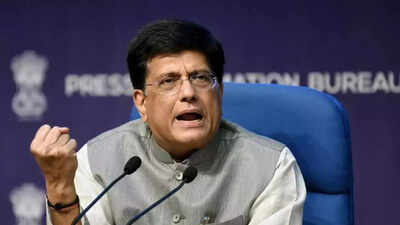Jane Street ‘market manipulation’ impact? Indian retail traders suffered heavy losses; Rs 1.05 lakh crore wiped out in derivatives trading in FY25

Jane Street case: Indian retail investors saw substantial losses of Rs 1.05 lakh crore in derivatives trading in FY25, according to recent SEBI data. This revelation coincides with SEBI’s investigation into American quant trading firm Jane Street’s alleged market manipulation activities.The situation appears particularly concerning as SEBI’s allegations against Jane Street, involving Rs 36,500 crore profit through market manipulation, emerge alongside the regulator’s report showing retail F&O traders’ net losses increased from Rs 75,000 crore in FY24 to Rs 1.05 lakh crore in FY25, according to an ET report.The losses intensified with increased participation in derivatives trading. The number of individual derivative traders grew from 86.3 lakh in FY24 to 96 lakh in FY25. Average losses per individual increased from Rs 86,728 in FY24 to Rs 1,10,069 in FY25, representing a 27% rise, the report said.The three-year period shows significant expansion in both participation and losses. FY22 recorded 42.7 lakh F&O traders on Dalal Street with total losses of Rs 40,824 crore. These figures have more than doubled over three years.“Further, the percentage of traders making losses in the equity derivative segment remained broadly unchanged at 91% from the earlier study done by SEBI,” the regulator said, highlighting the consistent pattern where nine in ten participants incur losses in derivatives trading.Also Read | Jane Street ban: Why has SEBI barred US-based trading firm, which made multi-thousand crore profit, from India’s securities markets? Explained
Jane Street’s Market Activities Under Scrutiny
The severe losses faced by retail traders take on a darker dimension following SEBI’s accusations against Jane Street. The regulatory body issued an interim directive last week, alleging that the US-based firm orchestrated deliberate market manipulation to extract profits from substantial index options holdings.SEBI’s investigation reveals that Jane Street conducted concurrent transactions across various market segments, including cash equities, stock futures, index futures and index options, allegedly in a calculated manner to influence market movements.The regulatory findings suggest that the firm undertook intensive purchasing of Nifty Bank constituent stocks and futures in early trading hours to drive prices upward artificially. Subsequently, they would liquidate these positions through aggressive sales later in the day, triggering price declines. These synchronised transactions were allegedly executed to influence the index at specific intervals to benefit their substantial options portfolio.Jane Street has contested these regulatory findings.
Derivatives Trading Surge Sparks Concerns
The rapid rise in individual investors trading derivatives has triggered worries about families risking their savings in volatile markets, the ET report said. Warren Buffett’s famous warning about futures and options as “financial weapons of mass destruction” seems particularly relevant today as Indian households invest heavily in a market where institutional players and firms like Jane Street hold significant advantages.Following evidence of retail savings shifting towards derivatives speculation, SEBI introduced regulatory measures in November 2024 to address the growing concerns.Also Read | Explained: How Jane Street made a staggering Rs 735 crore profit in Indian markets in just a day? SEBI reveals details of ‘manipulation’ strategy
SEBI’s Regulatory Actions
The regulatory authority introduced several controls to address market volatility, particularly concerning daily index expiries. These included restricting weekly expiries to Nifty and Sensex contracts, raising lot sizes from Rs 5-10 lakh to Rs 15-20 lakh, alongside increased margins for expiry day trading.Initial results indicate these interventions are showing effects. According to SEBI’s analysis from December 2024 to May 2025, index options trading volume decreased by 9% year-on-year in premium terms and 29% in notional terms. Individual trading volume declined by 11% in premium terms, whilst the count of unique individual traders reduced by 20% compared to the previous year.Nevertheless, the scale of the issue remains significant. “India continues to see a relatively very high level of trading in EDS (equity derivatives segment), compared to other markets, particularly in index options,” SEBI acknowledged.SEBI observed that whilst derivatives markets “assist in better price discovery, improve market liquidity and allow investors to manage their risks better,” they also noted that “with an explosion in index options trading on expiry day over time, concerns arose around investor protection & systemic stability.”The Jane Street situation highlights concerns regarding retail traders’ vulnerability to sophisticated algorithmic trading and well-funded institutional participants. The substantial retail losses combined with alleged institutional market manipulation raises serious concerns about India’s expanding derivatives market, the ET report said.A critical question worth Rs 1.05 lakh crore persists: Are retail traders unsuccessful due to lack of skill, or are they structurally disadvantaged in markets where entities like Jane Street allegedly influence prices without adequate oversight?






